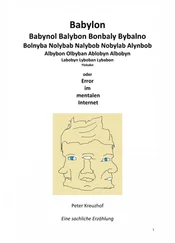The foreigners admire the boiler-room equipment for a while. Rácz shows them with signs and gestures where the problem lies. The visitors nod. Then they take gifts out of their pockets. There is a hundred-mark note from the German, with a carton of cigarettes. By some miracle he has found out Rácz’s favourite brand. The Arab wants to show his appreciation with some strange thick-rolled cigarettes with an unusual green tobacco and a fifty-dollar bill. His gestures stress that he is freezing. The African gives him nothing; he is stingy and, anyway, has nothing to give. He draws attention to his situation by whining, and begs for help. Rácz can’t take his eyes off him. He’s never seen a black man in his life.
After focussing his thoughts for a while, he sets off for the hotel. Just the way he is, in his dirty dungarees. No one gets in his way, no one tries to throw him out. The freezing employees see him as their Messiah. “Can you do anything about it?” The receptionist’s teeth are chattering. Rácz is silent for a long time. He downs a shot of vodka brought to him on a salver, and turns the empty glass around in contemplation. “Ah,” he says and then gives the receptionist a long hard gaze.
From the staff room and the changing room of the reception area comes the porter Torontál’s heavy cough. He has caught pneumonia from eagerly hanging around the cold reception area. The liftboy and two waiters from the day bar had to pry his greedy fingers from the mahogany reception desk by force. They carried him to the staff room, like a piece of luggage, to die. The staff room serves as a smoking room for the receptionist, his assistants and lift boys. The men sit in the corner, smoke, and talk in hushed voices. Occasionally they take a look at Torontál. The old man is lying on the floor with his big nose pointing up and his eyes glazed over. His throat rattles and hisses. The men check their watches, quickly put out their cigarettes, button up their jackets and tie their loosened bow-ties. They go back to work. The old man is left on his own. Nobody likes him; they’re all waiting for him to expire.
The doorman smiles nervously at Rácz. The assistant manager offers him a cigarette. “I’ve got my own,” says the stoker dryly and takes out a Benson & Hedges given him by the Englishman. A collective unsynchronized clicking of lighters, with gas hissing in various tones, and also a belated hysterical, panicky, hopeless striking of match against matchbox, descends like a tornado on the tip of the long cigarette casually hanging from his mouth. Rácz takes a mighty draw. “Well, let’s do it,” he decides.
The assistant manager himself summons the lift, as if he wanted to cancel the injustice committed at the scene.
Rácz walks through the rooms, pretending to fix radiators. He bangs on them, listens to their sound. He shakes his head, seemingly worried. They can all see that he is doing his best. He lies down close to the radiators and performs thousands of unnecessary actions. In each room he gets something. The German couple gives him a picture of the Pope; a grey-haired Canadian takes a five-hundred-crown note from his wallet. A young Italian furtively hands him a pornographic magazine showing four men quartering a live schoolgirl. A dishevelled long-nosed American violinist gives him a hundred-dollar bill. It all depends how badly they are shivering and freezing.
Most of the rooms are empty. The guests are keeping away from the building. Rácz has taken a liking to playing the saviour. “I don’t think,” he tells the assistant manager while putting the hundred-dollar bill into his wallet, “that the heating will be back on today. Tell them all I’ll have to come back tomorrow. I’m doing this in my free time. I’m not getting paid for this. Tell them what I said. It is up to them if they want to have heating or not.”
The assistant manager lowers his eyes. He nods.
“I’m relying on you,” Rácz adds. “If you don’t let me down, you’ll have all the heating you could dream of. But if you let me down me, then I can’t guarantee anything…”
Rácz enjoys looking at the gifts from the freezing guests. They forced Rácz to take these things. He hasn’t asked for a thing. A giver is a fool, but a refuser is an even bigger fool. And, anyway, hasn’t Rácz earned it? He’s been working here almost four months without pay. Thankfully, he doesn’t have to pay for his food. Who gives Rácz anything?
From the laundry room window Ribana grins at him. Rácz pretends he hasn’t seen her. He takes a glass bowl and spoon from the table and approaches the soup pot. The chef gives him a ladle: “Bon appétit, boss,” he tells him obsequiously.
“You don’t give a shit about my appetite,” says Rácz indifferently and stirs the thick, fragrant stock.
* * *
The next day by lunch time there is heating everywhere. Rácz carries off downstairs into his cubbyhole windcheaters, jeans, cartons of American cigarettes, pornographic magazines, chocolates, sports bags, French cosmetics, chewing gum, bundles of deutschmarks , francs, dollars, and pounds sterling. Every guest has given him something, or has left gifts for him on the bed in their room.
After a freezing night everyone considers Rácz a saviour. He is all over the hotel. You can meet him in the halls dragging iron rods or wires about. Or he needs a bucket, or somebody to hold a nut. Everybody takes a liking to him. The assistant manager follows him like a dog and wants to be on first name terms. Rácz ignores him. “Everyone should know their place,” he finally declares. The assistant manager is puzzled as to what he means. The waiters serve Rácz hot tea and rum. When he’s made a big enough impression on them, he crawls back to his boiler-room and finally opens the valves he closed. Soon everyone is cosy. The receptionist takes the coat off his shoulders. The guests smile. Torontál gets up from the couch and goes for a pee. Then he returns and wraps himself in a blanket. He feels better. He’ll take another day or two and will be back at the reception. His hands are itching in anticipation of leather suitcase and bag handles. He wants to live and be useful a little bit longer.
Rácz is counting his foreign money and putting it at the bottom of his suitcase when Silvia enters. When she notices the colourful banknotes that the stoker has stowed away in the suitcase, her eyes begin to shine.
“Let’s do it really quickly today, okay?” Silvia says. “We’re rehearsing a new show. I won’t undress, okay?” Rácz doesn’t care. He gets up and unzips his fly. Silvia takes off her panties, lifts her skirt and, gripping the door jambs, offers her behind to Rácz. The stoker enters her and writhes for a while, holding her hips tightly. Soon his face stiffens and a mighty sigh escapes his lips.
They both adjust their clothing. “What are you going to do with the foreign currency?” Silvia asks with studied indifference.
Rácz doesn’t answer. He doesn’t know, anyway. “What should I do?” he asks after a pause. “Next time you come, I’ll give you some. I don’t care about money. Back in the village I often paid for everyone in the pub.”
Silvia smiles. “Tell the receptionist when you need me. He’ll get me even when I’m at home. Or call me. You want my number?”
“Why should I call you?” Rácz shrugs. “I’ll tell the receptionist.”
Rácz has never in his life used a phone. Not even when he was in the army. When he was on guard duty, he would walk around the ringing phone suspiciously, but he never answered it.
Silvia leaves. Rácz reaches into a heap of Western goods spread on the table in his cubbyhole and takes a bottle of alcohol. He reads the label following the letters on the black paper with his finger: Chivas Regal Scotch Whisky. Oh well, let’s try this Heevash Reygahl , he decides. He looks for the tin coffee cup.
Читать дальше












